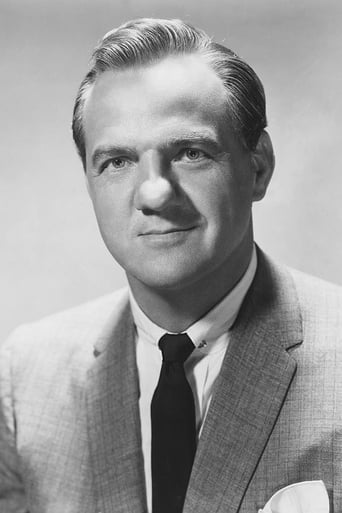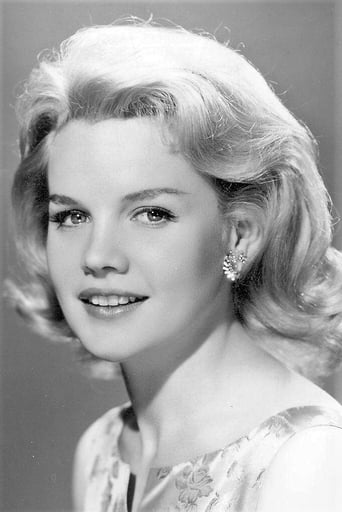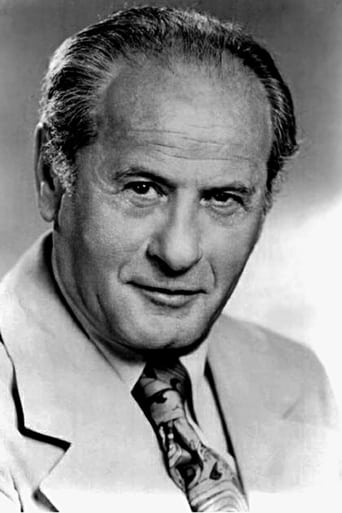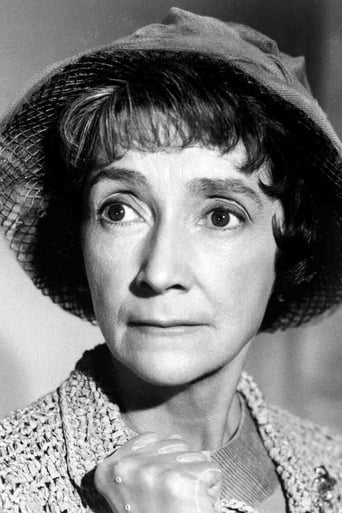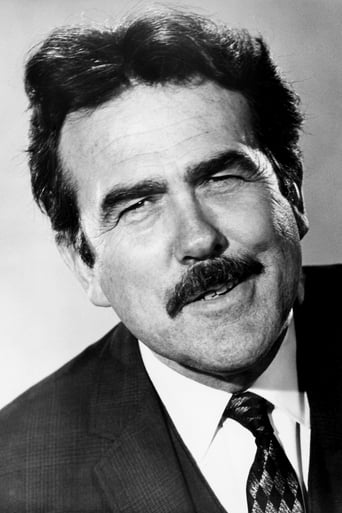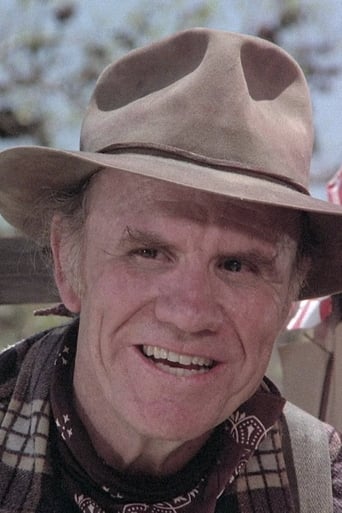Raetsonwe
Redundant and unnecessary.
Cooktopi
The acting in this movie is really good.
Jenna Walter
The film may be flawed, but its message is not.
Deanna
There are moments in this movie where the great movie it could've been peek out... They're fleeting, here, but they're worth savoring, and they happen often enough to make it worth your while.
evanston_dad
I don't know exactly what "Baby Doll" is. It's got all the Southern Gothic trappings of Tennessee Williams' darkest work, but it's not especially dark in story or themes. Nothing about it seems significant enough to raise it to the level of serious drama. So is it a comedy? Maybe, or at least Tennessee Williams' version of one. I did laugh, but I'm not sure whether that was because I found things truly funny or whether it was a defense mechanism in the absence of knowing what else to do.A young married woman doesn't want to have sex with her husband because he's...well, kinda gross....but she's super turned on by her husband's more successful business rival, who spends the entire film chasing her around her dead father's giant, dilapidated mansion trying to get in her pants. And that's it. That's what "Baby Doll" is about. It seems to be mostly an exploration of middle age male failure and emasculation, but I'm not sure what it has to say about the topic. Karl Malden plays the kinda gross husband who can't make a success of anything -- his business, his marriage, his sex life. He's a failure in pretty much every way traditionally thought to define a man. Eli Wallach, on the other hand, is successful in all the ways Malden is not, including but not limited to the ability to turn on his wife. And Carroll Baker is the eponymous Baby Doll, a woman child who seems not to understand the allure she has over men, and seems to both kind of like it and kind of not.Baker received an Oscar nomination for her performance. Mildred Dunnock, who plays an addled aunt, was also nominated in the supporting actress category, but I have no idea why. She has 12 minutes or so of screen time (I timed it) and has very little to do other than look lost. A weak year for contenders, perhaps? The film also brought nominations to Williams for his adapted screenplay and to Boris Kaufman for the film's black and white cinematography.Grade: A-
ingbru2
After watching this very amusing comedy on disk, I watched the interview with three of the actors - Eli Wallach, Carol Baker, and Karl Maulden, plus some additional footage about the controversy over the film at the time of its release in the Christmas season of 1956. Special attention was paid to the comments of Cardinal Spellman in St. Patrick's Cathedral who said that any Catholics who would watch the film would commit a sin. The Legion of Decency is also quoted in condemning the film. Warner Brothers eventually withdrew the film from circulation. By today's standards of bare skin and profanity, "Baby Doll" is tame. The irony of Cardinal Spellman's declaration is that as he uttered his condemnation priests were molesting youngsters and getting away with their sexual abuse for years. There is no sexual abuse in the film. No children are involved. Spellman was riding a wave of orthodox opposition to the liberalization of sex in films as Elvis Presley began to reshape teens' views about sexual behavior.Tennessee Williams wrote a screen play that poked fun at various aspects of Southern culture without being blatant about it. His drama focuses on two men, one of whom accuses the other of setting his new cotton gin on fire to protect his own failing ginning business. The young, naive wife of the supposed arsonist becomes the target of the outsider whose gin has been destroyed. He spends an afternoon trying to persuade her to sign a statement that her husband burned down the new ginning mill. His advances are suave but not so overtly sexual as Spellman and the League of Decency proclaimed. In fact, the film is often very funny, but its comedic nature was totally ignored by Spellman and his supporters.It may be difficult for today's audiences to comprehend the censorship that obtained during the 1950s, but it was strong and sustained by the hearings of Senator McCarthy who was hunting commies in Hollywood. Tennessee Williams also wrote screenplays for "A Streetcar Names Desire," "Cat on a Hot Tin Roof," and "Suddenly Last Summer," all films in the 1950s with sexual themes. The last of the three involved homosexuality and an effort to cover it up by having a young woman committed to a mental institution. Yes, those were the days when women could be declared "hysterical," and committed. Unlike these three films "Baby Doll" is a comedy and a satire.Fortunately, "Baby Doll" has survived and stood the test of time and is still a very entertaining film to watch. Carol Baker's performance is superb. She won an Oscar nomination. Only a playwright like Tennessee Williams could end it with such poignant lines, reminiscent of Scarlet O'Hara. You will have to watch it to see what Carol Baker's character says in the closing moment.
sunznc
The first thing I want to say is I'm a fan of Carrol Baker. That is the reason why I wanted to see this film. I've seen many of her films and I enjoy her work.I think the acting here is excellent by everyone. Everyone did a very good job. The setting is also very good. The production people have a very good eye.However,..............despite the fact that I did find the film intriguing and got sucked into the entire seduction scene I couldn't help but wince at poor post production re-dubbing. The sound doesn't match up correctly, it doesn't sound right. For example: an older woman outside talking with an echo? She's outside in a breeze. That looks bad.Also, some of the situations are just downright silly. Carl Maldon's erratic behavior left me feeling on edge and worn out. But as always, I thought Carrol did a marvelous job.So, great acting, interesting story but very dated and very old with poor sound. Some of it just wasn't very polished and it wears after a while.
Jay Raskin
I first saw this film in the late 1960's at one of the great lower Manhattan revival art houses. They were a great place to get an education in cinema, usually showing a double feature for about $2. I must have been about 16 and I thought this film was about the sexiest I had ever seen. I immediately fell in love with Carroll Baker.Seeing it again more than 40 years later, it has lost some of its eroticism, but now I can appreciate Ms. Baker's terrific performance. (I was really surprised when I looked up her age and found that she was really 25 at the time and not 19 as she looks in the movie). In fact, all the main actors, Eli Wallach, Karl Malden and Mildred Dunnock are all wonderful in it.In the 1930's, there were a bunch of screwball comedies usually involving a wealthy man or his son falling in love with a young woman and interacting with her family of offbeat characters (e.g. "You can't take it with you."). Here Williams takes the formula but integrates it into his usual Southern environment and adds healthy douses of talk about sex and seduction. Only the wealthy man (Silva Varcarro) hasn't fallen in love with the young woman, he is just trying to seduce Baby Doll to get revenge for her husband (Archie Lee) setting fire to his cotton gin.The fact that Vacarro is Italian and an outsider in the good old boy community means that he can't get justice through the normal legal channels. He has to seek his revenge through the seduction of Archie Lee's young wife.Archie Lee is both disgusting and pitiable as a Southern aristocrat trying to prove his superiority and breeding, while his financed furniture is being repossessed, his gin mill machinery is broken down, and his wife refuses to let him consummate her marriage. If the film were remade today, I think that in order to enhance the satire and stay true to the spirit of the piece, instead of an Italian suitor, the role would have to be played by a black man. Of course, in 1956, the racists in the South still had enough power to prevent any such movie from even being considered.It is a little ironic that the Klan didn't protest the movie and shut it down because of its wicked satire on Southern well-bred gentlemen and virgin South bells, that was left to Cardinal Spellman and his gang of sexually repressed hypocrites in New York.



